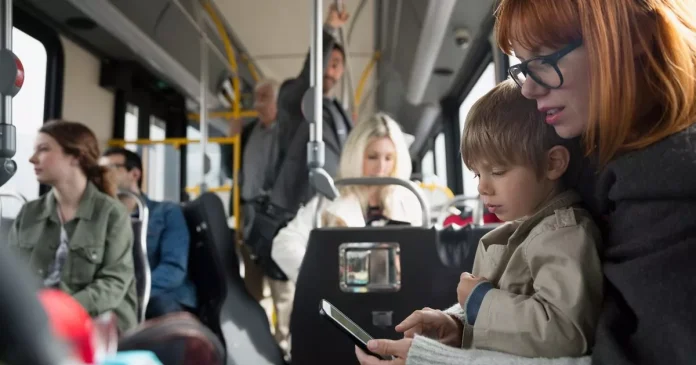It’s 7am on a Monday morning, you’ve had to wake up at the crack of dawn, get ready, and head in to work on a transport system that’s (literally) bursting with people at all times, but especially at that time.
All you want is to achieve a state of zen as you put yourself through a cumbersome commute. Instead, what you get is an impossibly loud TikTok video being played at a dolphin-like frequency from the person sitting (or squished real tight) next to you.
If you’re one of the many, many individuals who have been disturbed by blaring music and noise from people’s phones while using public transport, then the Liberal Democrats believe they may have just the solution to your woes.
The party is pushing for a crackdown on the nuisance of individuals blasting music on public transport, suggesting penalties of up to £1,000 for rule breakers.
Do you agree with the call for £1,000 fines on annoying public transport passengers? Take our poll and have your say.
Sir Ed Davey’s party is aiming to modify the Bus Services Bill, currently being reviewed in the House of Lords, to ban the playing of music and videos from mobile phones on public transport across England. They propose that this alteration could be enforced using existing railway byelaws, which already prohibit actions such as littering, spitting, and using offensive language.
The political party contends that local authorities could impose similar rules on buses by bolstering current antisocial behaviour laws. Under their proposed amendments, anyone found violating the ban could face a hefty fine of up to £1,000.
Lisa Smart, the Lib Dems’ spokesperson for home affairs, said that antisocial behaviour makes people “dread their daily commute” and highlighted that “headphone dodgers playing loud music on buses and trains are some of the worst offenders.”
She added: “Whether you’re heading to work, taking your kids to school, or simply trying to enjoy a moment of peace, everyone deserves to feel safe and respected on public transport.”
Smart also emphasised: “Time and time again, I hear from people who say they feel too intimidated to speak up when someone is blasting music or other content from a phone or speaker.”
The Lib Dems are cracking down on inconsiderate folk who blast their tunes way too loud in public spaces, suggesting a hefty fine could be slapped on offenders to the tune of £1,000. They’re rallying for the “quiet majority,” with their spokesperson stating: “It’s time to take a stand for the quiet majority who just want to get from A to B in peace.”
And it’s true. People have generally started being less considerate towards others, with incidents of rudeness increasing worldwide over the past few years. A 2022 study revealed that 76% of individuals encounter rudeness at least once a month, a significant rise from 55% a decade ago.
According to research by Monash political scientists Dr Steven Zech and Dr Matteo Bonotti, societal incivility has been incrementally increasing, particularly following “global stressful events” such as the COVID-19 pandemic, the 2016 Brexit referendum, and the 2008 financial crash — all of which had far-reaching consequences that can be felt even today.
Professor Lucas Walsh, director of Monash’s Centre for Youth Policy and Education Practice, even suggests that specific events are not the sole cause of this trend. He attributes the rise in rudeness to the shifting nature of society, which has become more diverse and individualized, making it challenging for people to share common values and a mutual understanding of the greater good, leading to increased friction among individuals.
Labour’s Gareth Bacon hasn’t been shy about sharing his two cents either. The Shadow Transport Secretary said: “Everyone deserves to travel in peace. Playing loud music on public transport may seem like a small thing, but it speaks towards a growing tolerance of antisocial behaviour that chips away at public civility.”
Do you think annoying passengers on public transport deserve £1,000 fines? Take our poll and have your say.
At Reach and across our entities we and our partners use information collected through cookies and other identifiers from your device to improve experience on our site, analyse how it is used and to show personalised advertising. You can opt out of the sale or sharing of your data, at any time clicking the “Do Not Sell or Share my Data” button at the bottom of the webpage. Please note that your preferences are browser specific. Use of our website and any of our services represents your acceptance of the use of cookies and consent to the practices described in our Privacy Notice and Cookie Notice.


